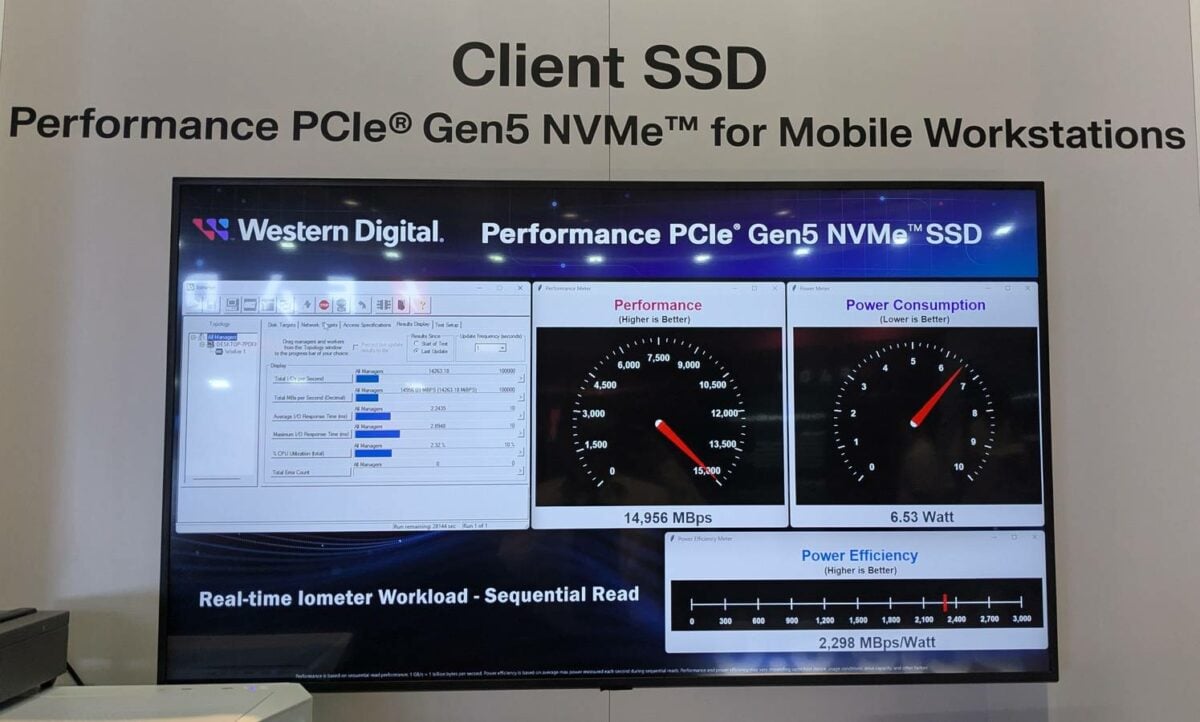WD has unveiled its latest SSD controller, boasting high efficiency and transfer speeds. Found in the brand’s upcoming Gen 5 M.2 SSDs, this new chip allows up to 15GB/s read speed.
During its FMS 2024 exhibition, Western Digital (WD) presented its PCIe 5.0 x4 M.2 2280 NVMe SSDs. Though these models have yet to get an official name, we know that they will be available in 2TB capacity, targeting desktop and mobile gaming/workstation PCs.
Instead of chasing Gen 5’s higher speeds at the cost of efficiency, WD initially focused on its Gen 4 lineup, offering good enough performance with the WD_Black SN770 and SN850X SSDs. Now that its new in-house controller is ready, the brand expects to deliver up to 15GB/s read speed.
To be more specific, the brand plans to release at least two models: one for mainstream plus another for the performance segment. The former is a DRAM-less M.2 2280 SSD powered by a four-channel controller offering 10,470MB/s sequential read at 4.97W power consumption, i.e. 2,086MB/s per watt consumed. The latter, on the other hand, takes performance and efficiency to new heights, reaching 14,956MB/s sequential read at 6.53W – in other words, 2,298MB/s per watt consumed.

Though both models use 218-layer 3D TLC NAND to unlock this level of performance, the faster drive leverages an eight-channel controller alongside its DRAM cache. WD expects the mainstream version to consume 5W, making it adequate for mobile devices, with the performance variant slightly hungrier at 7W. Even so, the latter remains the most efficient due to its higher transfer speed.
While early drives based on Phison’s E26 controller got fairly close to the maximum theoretical speed of the PCIe x4 Gen 5 interface, they ran quite hot, requiring large heatsinks and sometimes even active cooling. Thanks to WD’s solution, we can finally equip any compatible machine with faster storage – including laptops – without thinking too much about temperatures.


